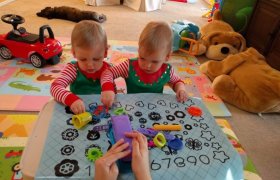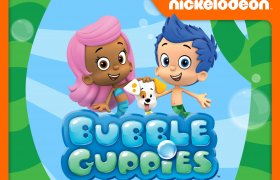Why Should All Kids Keep a Journal

Keeping a journal has seen a resurgence in popularity in recent years, from keeping track of a to-do list, to writing down thoughts on the day’s happenings many adults are carrying around a notebook. The internet is full of posts on how to harness the magical productivity gains that a journal can provide, but they don’t often seem like things a child would need or want to track or document. However keeping a journal can be a fun, rewarding, and educational experience for children if done properly.
A journal can be so many things for so many people, it can be a way to express feelings, document life events, show creativity, and even a way to keep track of goals. While some think a journal is just another word for a diary, it is more correct to call it a repository for the brain. A diary can be a part of a journal but it doesn’t need to be the whole thing. While keeping a journal is usually portrayed in the media as something angsty teenagers do, the truth is that anyone at almost any age can begin to have space and time to journal.
Kids can begin journaling early with an art journal, drawing a picture a day.
These can be fun to look back on, but also an important lesson in taking time every day to do something good. Getting into the habit of taking some time to reflect and create can be a lifelong help in dealing with stress and life changes and will teach your child good coping skills. The routine of journal time can become comforting for children especially as they grow and may feel out of control over the changes they are experiencing.
Keeping a nature journal can be a fun way to experience and process the great outdoors, learning to sit and observe and draw what they see can help children learn patience, perseverance and a love for science and exploring. Keeping all their pictures and notes in one place can help them to see improvement and can be a concrete example to them that practice makes progress.
As children grow and become capable of writing, they can add a section of gratitude, writing down something every day that they are thankful for or something good that happened. This can be especially important on bad days to learn to focus on things that are positive in the midst of disappointments. Learning to celebrate even small milestones will serve your child well in the future so they don’t get bogged down in negativity during times when things aren’t going as well as usual.
When children are in elementary school they can begin writing short stories and plays and take time to pursue other creative writing projects. If your child gets writer’s block there are many journals prompts on the internet to help them spark an idea. Writing daily in a journal is not just supportive of social and emotional development but can help academically as well with reading, spelling, writing, and practicing new skills.
 Keeping a reading log and thoughts about books that they read is an amazing way to add on to the reading experience. It can also be supportive of learning to read deeper, for example when beginning a chapter book your child can note thoughts on each chapter and then review them after the book is done to see if their first impressions of characters or situations were accurate and if they picked up on themes and symbolism that were important.
Keeping a reading log and thoughts about books that they read is an amazing way to add on to the reading experience. It can also be supportive of learning to read deeper, for example when beginning a chapter book your child can note thoughts on each chapter and then review them after the book is done to see if their first impressions of characters or situations were accurate and if they picked up on themes and symbolism that were important.
By the time junior high and high school come around your child’s journal will be an important place to document thoughts, feelings, and keep track of their busy lives. Continuing on with the habits already established like adding drawings and art, having a gratitude section, and a place for creative writing will make their journal a rich and varied way to express themselves.
Journalling their way through friendship drama and school stress will help them learn to cope with strong feelings that come with growing up and may even help them to figure out tricky social situations, sometimes writing down your feelings and thoughts and coming back to them can help you untangle a lot of things and approach the situation with more caring and thoughtfulness than if you’re trying to wing it.
Your child’s needs as to materials will change as they age and with what type of journal they are keeping. Young children may be fine with a sketchbook and some crayons or colored pencils, while an older child may need lined paper and a pen that does not bleed through from page to page. Tweens and teens may start looking for stickers and tabs and highlighters to help them organize, decorate, and punctuate their thoughts. Preferences for spiral bound or tape bound will vary between children and may change as they transition to more complicated journals or with their moods. Let them come with you to pick out what they want and need and be prepared to have a talk regarding perfectionism if they mess up a page.
Like most things, children will learn through watching you, so consider starting a journal yourself and making a commitment to take some time each day together to work on your journals. Whether it’s just 5 minutes a day for younger children or a full 30-minute block while you’re waiting for dinner to finish, this quality time can be priceless. Even though you both may be completely silent and in your own world, the knowledge that there will be a time every day where you can slow down, spend some time reflecting on life, and maybe even share from time to time what you’re grateful for or a new piece of art you’ve made will be comforting and sets up an expectation of supportive sharing with your child.
Keeping a journal should never be stressful, you may find that your children will add every day for a while and then slack off a bit abandoning it, but then have renewed interest again later. This is completely normal and it pays to keep in mind that creativity can’t be forced. Even when the interest level is low, there may be room for just keeping track of the gratitude end of it, and finding balance is half the battle. Just keep trying and note what works and what doesn’t and you’ll eventually find what’s right for your child.






